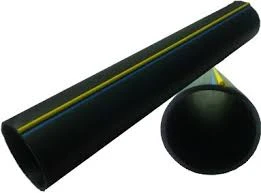नोव्हेंबर . 10, 2024 15:20 Back to list
Understanding the Benefits and Applications of Perforated PVC Pipe in Drainage Systems
Understanding Perforated PVC Pipe Applications, Advantages, and Considerations
Perforated PVC pipe has gained popularity across various industries due to its unique design and beneficial characteristics. This specialized pipe features small holes or perforations along its length, allowing for enhanced drainage, ventilation, and filtration capabilities. Understanding the applications, advantages, and considerations of perforated PVC pipe can help users make informed decisions for their projects.
Applications of Perforated PVC Pipe
1. Drainage Systems One of the primary uses of perforated PVC pipe is in drainage systems for both residential and commercial properties. The perforations enable water to seep into the pipe, preventing flooding and excess water accumulation in landscapes. This is particularly useful in areas prone to heavy rainfall, where proper drainage is crucial.
2. Agricultural Uses Farmers often utilize perforated PVC pipe in agricultural drainage systems. These pipes help redirect excess water from fields, preventing crop damage due to waterlogging. Furthermore, perforated pipes can be integrated into irrigation systems to improve water distribution, ensuring that plants receive adequate moisture.
3. Sump Pumps In conjunction with sump pumps, perforated PVC pipes serve to collect groundwater and redirect it efficiently. By ensuring that water is channeled away from the foundation of a property, these pipes play a vital role in preventing structural damage caused by water ingress.
4. Septic Systems Perforated PVC pipes are also employed in septic systems, where they facilitate the distribution of wastewater into drain fields. The perforations allow for aeration and filtration, ensuring that contaminants are properly treated before entering the groundwater system.
5. Ventilation Industries that require the effective ventilation of air, such as wastewater treatment facilities, also make use of perforated PVC pipe. The holes in the pipe allow for airflow while maintaining structural integrity, making it ideal for applications where both ventilation and durability are essential.
Advantages of Perforated PVC Pipe
1. Corrosion Resistance One of the standout benefits of PVC pipe is its resistance to corrosion. Unlike metal pipes, perforated PVC does not rust or degrade when exposed to moisture, extending its lifespan and reducing maintenance costs.
perforated pvc pipe

2. Lightweight and Easy to Handle PVC is significantly lighter than traditional materials like clay or concrete. This makes perforated PVC pipe easier to transport, handle, and install, reducing labor costs and increasing efficiency during construction.
3. Cost-Effectiveness Perforated PVC pipes are often more affordable than their alternatives. Their durability and low maintenance requirements add to their cost-effectiveness over time, providing users with long-term savings.
4. Versatile Design Available in various sizes and configurations, perforated PVC pipes can be tailored to meet the specific needs of any project. This versatility ensures that users can find the right pipe for their unique application.
5. Eco-Friendly Option PVC is recyclable, making perforated PVC pipes a more environmentally friendly alternative to some traditional materials. Additionally, their long lifecycle reduces the frequency of replacements, further minimizing environmental impact.
Considerations When Using Perforated PVC Pipe
While perforated PVC pipe has many advantages, users must also take certain considerations into account. Proper installation is crucial; if not installed adequately, the pipe's functionality can be compromised. It is essential to ensure that the surrounding soil allows for proper drainage and does not contain excessive sediment, which could clog the perforations.
Furthermore, when selecting perforated PVC pipe, it is vital to choose the right size and perforation pattern for the specific application. Different projects may require varying levels of drainage capacity, and understanding these requirements beforehand can prevent issues down the line.
Conclusion
Perforated PVC pipe serves a myriad of applications across agricultural, residential, and industrial sectors. Its advantages of corrosion resistance, lightweight design, cost-effectiveness, and eco-friendliness make it an attractive choice for many drainage and ventilation systems. However, users must consider installation methods and size specifications to fully harness the benefits of this versatile material. As demand for efficient drainage and sustainable construction practices continues to grow, perforated PVC pipe stands out as a reliable and effective solution.
-
Durable HDPE Sheet | Versatile & Impact-Resistant Plastic
NewsAug.13,2025
-
Premium PVC Soft Sheets: Clear, Flexible & Durable
NewsAug.12,2025
-
Premium PVC Round Rods: Durable, Chemical Resistant, Easy to Machine
NewsAug.11,2025
-
PP U-channel: Chemical-Resistant, Lightweight & Durable
NewsAug.10,2025
-
Transparent PVC Pipe: Clear Flexible Tubing for Fluids
NewsAug.09,2025
-
Durable PP Rigid Sheet: Versatile & High-Quality Plastic Panels
NewsAug.08,2025

